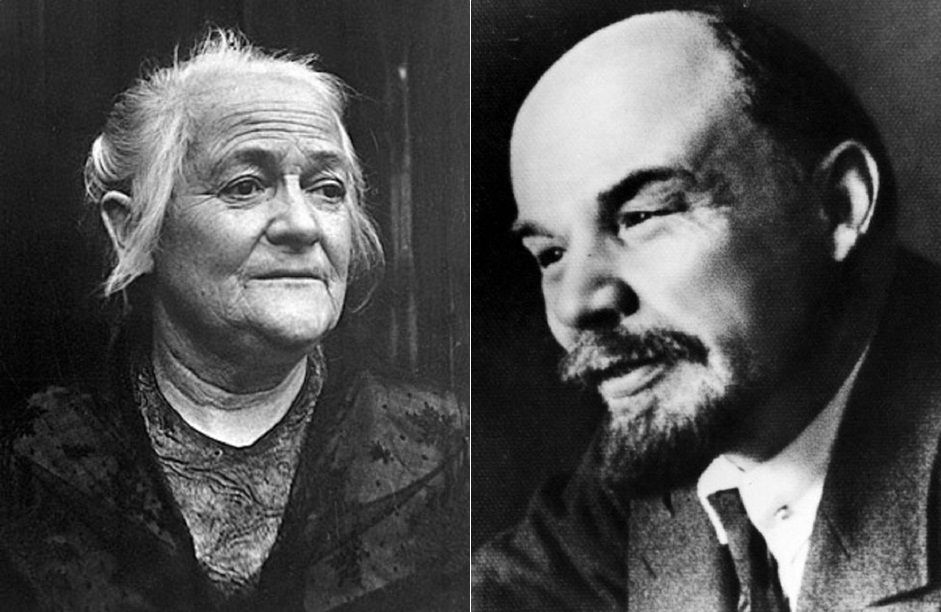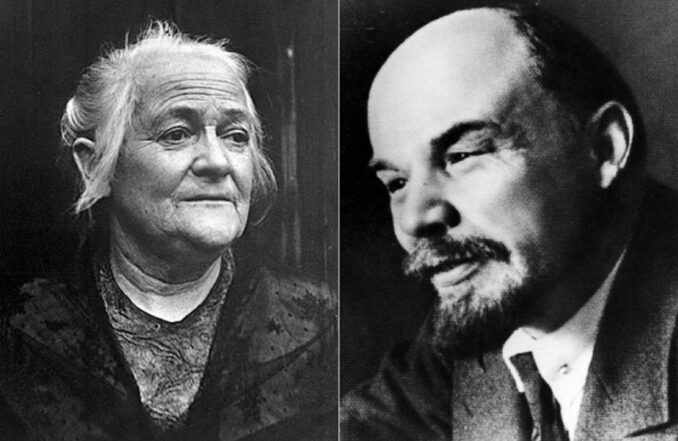

“She who is a Communist belongs as a member to the Party, just as he who is a Communist. They have the same rights and duties. There can be no difference of opinion on that score.” V.I. Lenin
German Marxist Clara Zetkin was a contemporary of Vladimir Lenin. She had organized among women workers and published a socialist women’s newspaper titled “Die Gleichheit” (“Equality”) for 25 years (1892-1917). In 1910 at the Second International Socialist Women’s Conference, Zetkin and others proposed that an International Working Women’s Day should be held annually; it passed unanimously.
Over 1 million people joined the first IWWD demonstrations, held throughout Europe in March 1911. Zetkin represented the Communist Party of Germany in the Reichstag (parliament) from 1920 until the party was banned in 1932.


Zetkin met with Lenin in the autumn of 1920 and recorded their discussion. Lenin’s remarks show that he respected Zetkin and treated her as a comrade and not an inferior. He spoke with the familiarity of a friend and mentor. It is clear that he valued her efforts regarding women’s place in society while offering his opinion on how that work should proceed and her role in that work.
Of the conversations, Zetkin wrote: “Comrade Lenin repeatedly discussed with me the problem of women’s rights. He obviously attached great importance to the women’s movement, which was to him an essential component of the mass movement that in certain circumstances might become decisive. Needless to say he saw full social equality of women as a principle which no Communist could dispute.”
Lenin said to Zetkin: “We must by all means set up a powerful international women’s movement on a clear-cut theoretical basis. It is clear that without Marxist theory we cannot have proper practice. A committee is still in charge of the matter. It is to draft a resolution, theses and directives but has made little progress so far. You must help it.”
Zetkin and Lenin agreed that women could only achieve full emancipation in a socialist society and that the middle-class suffrage movement would fail to free the women of the working class. Bourgeois feminism was a reformist movement that would keep the class structure intact.
Zetkin praised what Lenin and the Bolshevik Revolution had achieved for proletarian women, which he described: “In Petrograd, here in Moscow, and in other cities and industrial centers, proletarian women showed up splendidly during the revolution. We would not have won without them, or hardly. That is my opinion.”
Working women: ‘Magnificent’ class fighters
Lenin continued: “What courage they showed and how courageous they still are! Imagine the suffering and privation they are enduring. But they are holding out, because they want to defend the Soviets, because they want freedom and communism. Yes, our working women are magnificent class fighters. They are worthy of admiration and love.”
A Marxist analysis of any aspect of bourgeois society must acknowledge that private property is the foundational component at the core of the struggle between the ruling class and the worker, man or woman. This can not be stressed enough.
Lenin offered Zetkin advice on how to proceed in discussions among women, that they should critique bourgeois feminism using a Marxist framework to insure that individual relational problems do not supersede the class struggle. He said that class consciousness needed to be raised among working women and that relationship issues should be “dealt with from the point of view of mature, vital historical materialism [which] presupposes wide-ranging, profound knowledge and the fullest Marxist mastery of a vast amount of material.”
Zetkin shared her vision for a congress of women workers: “In my opinion, the congress ought first to discuss the women’s right to engage in trades and professions. In doing so it should deal with the questions of unemployment, equal pay for equal work, legislation on the 8-hour day and labor protection for women, organization of trade unions, social care of mother and child, social measures to relieve housewives and mothers, etc. Furthermore, the agenda should deal with the status of women in marriage and family legislation and in public and political law.”
Lenin was fully supportive of Zetkin’s vision, although the congress never materialized.
Again and again throughout the interview, Lenin stressed the vital part women play in the new society under communism. In fact, he was clear that he believed the revolution would be imperiled if women were not equal partners. He counseled Zetkin that the emancipation of women can only come when private property is abolished. It was her belief too, but she must have welcomed the straightforward words from Lenin.
Need mass women’s movement of all exploited, oppressed
Lenin told Zetkin: “The communist women’s movement itself must be a mass movement, a part of the general mass movements; and not only of the proletarians, but of all the exploited and oppressed, of all victims of capitalism or of the dominant class. Therein, too, lies the significance of the women’s movement for the class struggle of the proletariat and its historic mission, the creation of a communist society.
“We can be legitimately proud that we have the flower of revolutionary womanhood in our Party, in the Comintern. But this is not decisive, we have to win over the millions of working women in town and country for our struggle and, particularly, for the communist reconstruction of society.”
Lenin said that when speaking at a Party Congress, women should be encouraged to “speak out loudly and clearly like fighters should. … A congress is a battlefield in which we fight for the knowledge we need for revolutionary action. Show that you can fight. In the first place, of course, against our enemies, but also within the Party, should the need arise. After all, the broad masses of women are at stake.”
Zetkin and Lenin were comrades in the vanguard who shared ideas, critiqued each other’s arguments and offered their solicited and sometimes unsolicited opinions. Their warm kinship comes through in Zetkin’s account as well as their unguarded ease with each other. Most importantly, it is a true testament that Lenin’s understanding of the “women question” is just as profoundly relevant today.
To read Zetkin’s account of her conversations with Lenin in full, go to: libcom.org/article/clara-zetkin-interviews-lenin-womens-question
The epic struggle of the Palestinian people against the full weight of U.S. imperialism and…
The following report comes from the Bronx Anti-War Coalition organizers on a protest held in…
In the Canadian federal elections held on April 28, the Liberals won with 169 seats…
The following is Part 2 of a talk given by the author to a meeting…
Boston Students, professors and workers are confronting the Trump administration’s fascist crackdown at universities across…
Philadelphia Within days of Swarthmore students reviving a pro-Palestinian encampment on April 30, police arrested…